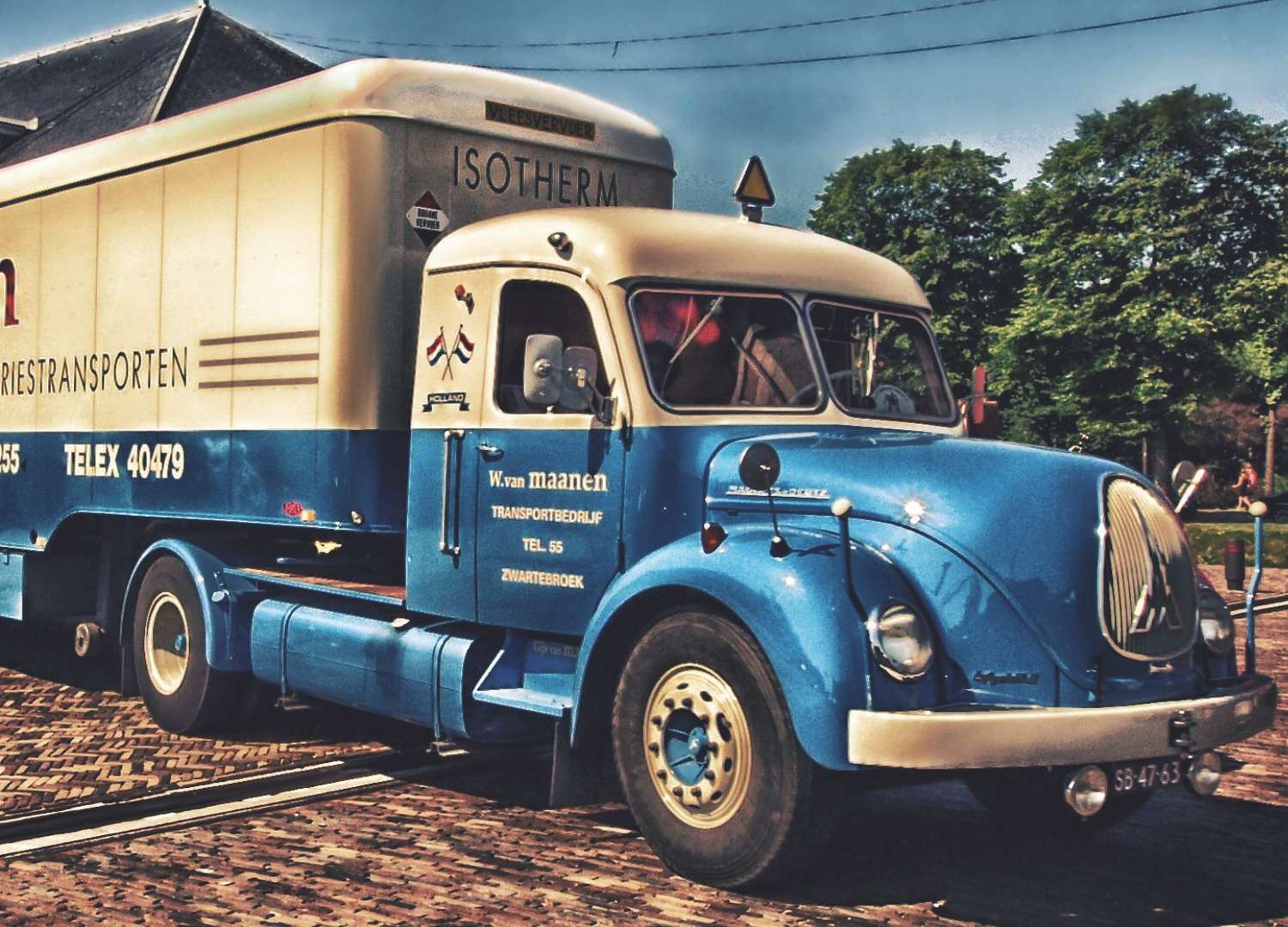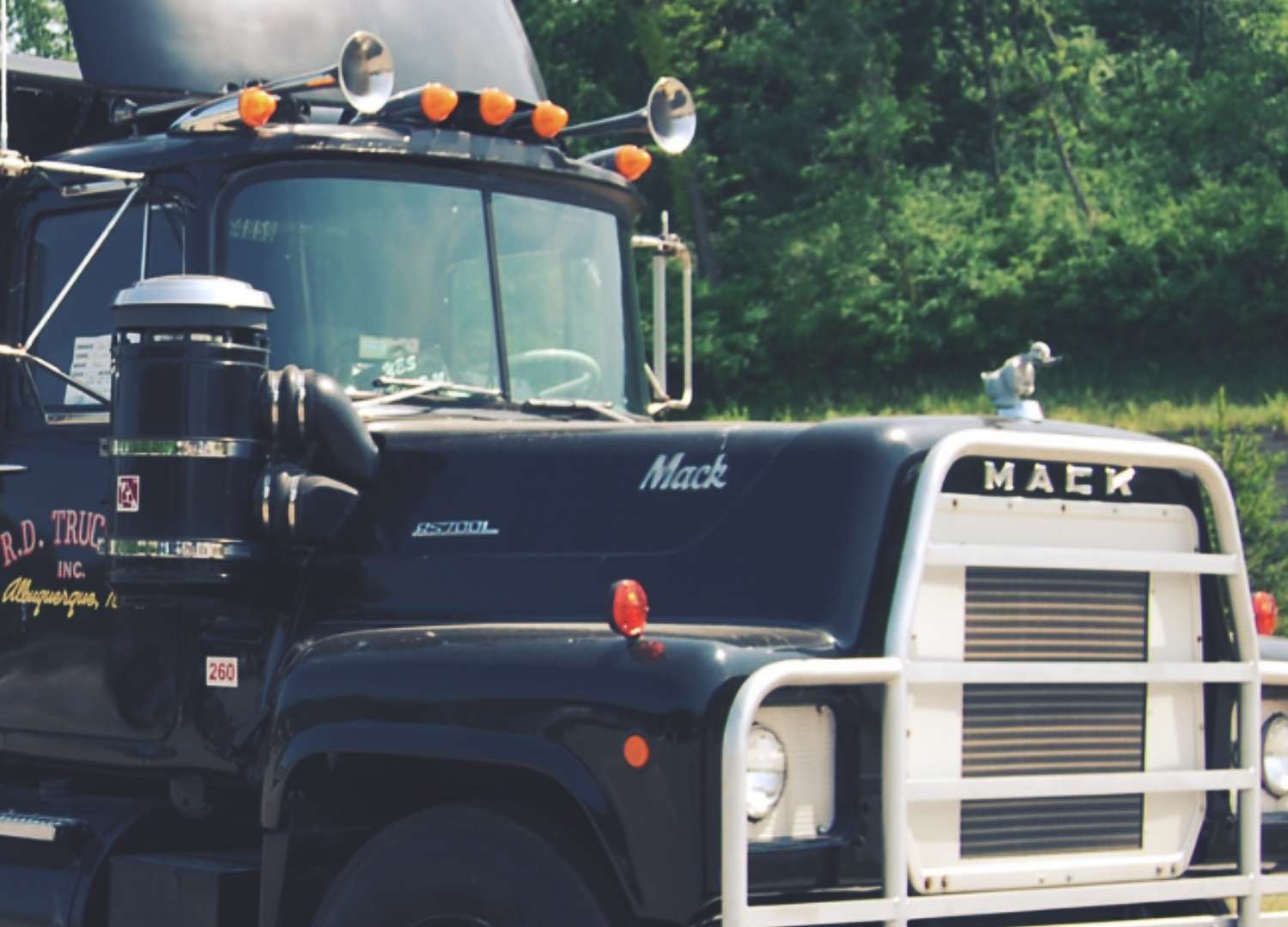
Do you think the image of the American trucker has declined over the years? Industry changes, media representations, regulations, and other factors have played their part in shaping an image of a truck driver as slothful, dirty, rude, and straight up nasty. But it wasn't always like this. There was a time when truck drivers were represented as heroes, as protagonists. A time when country singers honored them with their songs and let the world know about this proud and badass profession.
I believe there’s lots that can be done to improve this image and restore a brighter image of the American trucker. Let’s get into a bit of pop history to get a better idea of how to challenge these harmful stereotypes going forward.
The “glory days” of the trucker image
To picture the brief moment in time where truckers were at the peak of their public perception, imagine the song “Convoy” by C.W. McCall. Picture the romance for life on the road embodied by the Truck-driving country music of the 60s - 80s. Dave Dudley (Six Days on the Road), Del Reeves, and many more knew back then that a trucker’s life was worth celebrating. They helped shape the cultural perception of the truck driver into something noble, rugged, and worth honoring.
Of course, the first ever song glorifying the trucking lifestyle was released way before. In 1939, Cliff Bruner and His Boys recorded the “Truck Driver’s Blues” a song which at the time, was played at roadside cafe jukeboxes nationwide. But the trucks back then were kinda small and funny looking, so does it really count as a trucking song?
 That ain’t a truck…
That ain’t a truck…
This positive image of trucking wasn’t just isolated to music. In the early days of trucking, drivers were seen as protagonists and heroes of the popular media at the time. In 1940, Humphrey Bogart starred as a hardworking truck driver breaking out of poverty during the Great Depression in the movie They Drive by Night. 1977 saw the release of the world-famous Smokey and the Bandit, and the 1979 show B.J. and the Bear followed shortly after as another positive interpretation of trucking (and truckers) in popular culture.
Things really seemed to peak in the 70s, which are still regarded as the heyday of trucking. This period saw the greatest rise in the popularity of the trucking industry. Perhaps it was aided by the more homogenous trucker culture back then, the novelty of CB radios, and the popularity of CB slang among civilians and truckers alike. Arguably still a time defined by stereotypes, but positive ones compared to what would follow.
Things seemed good back then for truckers. Unfortunately, those days didn’t last and the trucker image took a nosedive in the later portion of the 20th century.
 ... This is a truck!
... This is a truck!
The birth of bad trucker stereotypes
Let’s shift our perspective from media to real life for a second. The deregulation of the industry and the Motor Carrier Act of 1980 which triggered the decline of working conditions, rights, and wages of CDL drivers, seemed to coincide with a downward trend in the media portrayal and public perception of truck drivers.
As the industry radically changed, so did the media’s prior approach to show the truck driver as a hero.
The 1980s seemed to trigger the decline of trucking culture and consequently the perception of the public. This seems to be a “chicken or the egg” dilemma. Which came first: The decline of the trucking industry, or the decline of the trucking image? Think about it.
When looking a little deeper into the development of negative trucker stereotypes, I stumbled on a few posts online that suggested a media shift in the early 90s. They claimed that something happened – that the driver image was contorted into an undesirable one. Let’s see if that idea holds true.
One of the first examples I was able to find of a negative trucker stereotype in popular media was from the early 90s. In the 1991 film Thelma and Louise, one of the minor characters is a dirty and slothful trucker who harasses the titular characters seemingly every chance he gets. Ignorant, lustful, and deluded – just the qualities you’d look for in a loving husband.
 The slack-jawed face of trucking according
to 90s Hollywood. Thanks Ridley Scott!
The slack-jawed face of trucking according
to 90s Hollywood. Thanks Ridley Scott!
But it wasn’t just stories and portrayals that contributed to the decline of the trucking image. In 1994, long haul trucker Keith Jesperson made headlines when he was outed as the “Happy Face Killer”. This event undoubtedly played a part in helping create the soon-to-be trope of the “serial killer trucker”.
Following the 90s, we see movies like the 2001 Joy Ride, featuring a killer truck driver, Suspect Zero, a 2004 movie about a truck driver as “the ultimate serial killer”, murdering in 50 states while using his nomadic lifestyle to evade attention. That same year, another real life killer trucker by the name of John Williams was convicted for murder. Can we take it easy with all the killing, guys?
Add to that the transformation of the trucking industry into something that is less regulated, bigger, and more intimidating than ever before and you’ve got yourself a recipe for some bad stereotypin’.
Are these bad stereotypes true?
We all know there’s an element of truth to most stereotypes. They exist for a reason and function as shorthand to categorize groups according to their certain “obvious” characteristics. However, for all the truth you can find in a stereotype, you can find an equal or greater amount of exceptions.
Negative stereotypes play their part in creating prejudiced and discriminatory attitudes, and they often affect us on a subconscious level.
The fact that stereotypes are formed without our conscious awareness is enough of a reason to try to understand and rethink them.
With that said, it’s also important for truck drivers and professionals within the community to acknowledge public perception and make decisions to improve their image in the eyes of the public and in popular culture.
What truckers and companies can do to fight bad stereotypes
We need to ask ourselves what it means to properly represent our profession and earn the respect we deserve.
If you’re a truck driver that cares about challenging stereotypes and reclaiming pride in your profession, you should consider the following ideas:
Drive safely and like a pro - Maneuvering 40 tons of metal down the highway is a responsibility that, if not taken seriously, could result in the serious harm (or death) of yourself and others. Though I’m sure you’ve heard it a million times before, safety is your #1 priority. Besides safety, you should never drive aggressively, cut people off, or contribute to the image of truck drivers as arrogant “owners” of the road. The same can be said for four-wheelers, though.
Keep your appearance in check - When you’re driving, you represent your profession. This isn’t just about how you look, but how well your truck is maintained, inside and out. When you deal with other people, you leave an impression in their minds - an impression of what truck drivers are like. Wearing clean clothing, maintaining hygiene, and keeping a professional demeanor will go far in earning you (and the company you represent) respect. This does NOT mean that you need to be somebody you’re not - just be a tidy ‘you’ and you’ll be fine!
Respect others the way you wish to be respected - If you want to be treated with respect, a safe place to start is by giving respect to others. If you feel like you need some extra support from your fellow professionals, give support. You get the picture.
A good attitude is good for you - Having a positive attitude and mindset is SO important. Not just for how others see you, but for your own wellbeing as well. The trucking industry is already filled with doomsayers and pessimists, and you don’t need to contribute to that. As a truck driver, your career is in YOUR hands. Your leverage is great, your choice of jobs is huge, your ability to make more money is there, you CAN excel in this career if you have a good attitude about it. Be polite, have a good outlook, and try to share some of that positivity with your fellow drivers over the CB radio – it will go a long way!
 The true face of truck drivers – good
people from all walks of life.
The true face of truck drivers – good
people from all walks of life.
Let’s improve these stereotypes together
You - the drivers of America - deserve to be treated like the competent, essential professionals you are. To get rewarded for the sacrifices you make. To get benefits, fair wages, and a work environment where your personal needs are respected.
But all of that doesn’t just land on your lap, it requires you to put in the work – to dress the part, act the part, and give respect. Your attitude, professionalism, and approach to your career will decide whether you contribute to a good image of drivers, or a bad one. Stay safe!